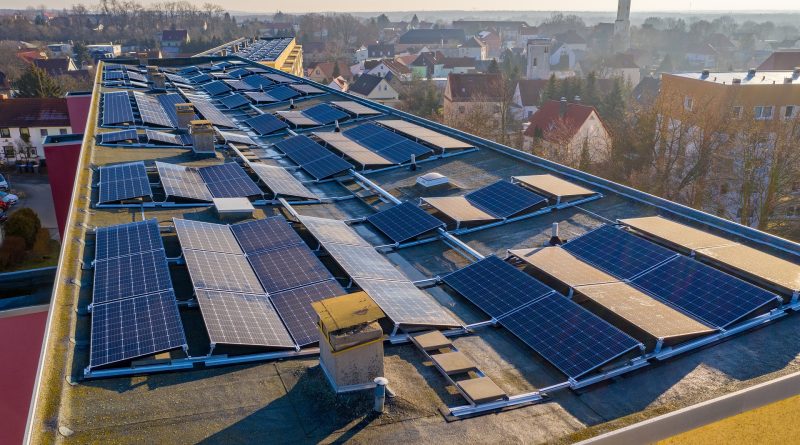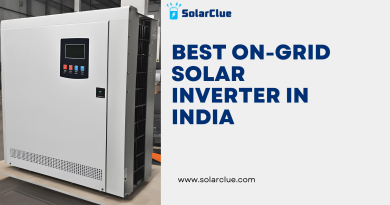Home Solar System Cost India: Affordable Solutions
Solar energy is a rapidly growing industry in India, with the government’s increased focus on renewable energy. As homeowners become more aware of the benefits of solar power, the demand for home solar systems has been on the rise. However, one crucial factor that often comes into consideration is the cost of installing a total home solar system in India. In this blog, we will delve into the various components and costs associated with a home solar system, providing you with a comprehensive understanding of what it takes to go solar in India.
Table of Contents
The Components of a Home Solar System
Before we dive into the costs, let’s first understand the components that make up a home solar system. A typical home solar system consists of solar panels, inverters, batteries, mounting structures, and electrical wiring.
Solar Panels
Solar panels are the heart of any solar system. These panels are made up of photovoltaic cells that convert sunlight into electricity. The number of solar panels required for a home depends on factors such as the energy consumption of the household and the available rooftop space for installation.
Inverters
Inverters are devices that convert the direct current (DC) electricity produced by the solar panels into alternating current (AC) electricity, which is suitable for powering household appliances. The type and capacity of the inverter depend on the capacity of the solar panels and the load requirements of the household.
Batteries
Batteries are optional components in a home solar system, but they play a crucial role in storing excess solar energy for use during nighttime or cloudy days when the panels are not generating electricity. The requirement for batteries depends on the level of backup power needed and the frequency of power outages in the area.
Mounting Structures
Mounting structures are used to fix the solar panels on the rooftop or any other suitable surface. These structures ensure that the panels are securely installed and properly angled to maximize sunlight absorption.
Electrical Wiring
Electrical wiring connects the solar panels, inverters, batteries, and the main electrical panel of the house. It is essential to ensure that the wiring is compatible with the system’s capacity and follows electrical safety standards.
The Cost Breakdown
Now that we have a clear understanding of the components, let’s explore the cost breakdown of a total home solar system in India. It’s important to note that the overall cost may vary based on several factors such as location, system size, quality of components, and installation charges.
Solar Panels Cost
Solar panel costs are primarily determined by their capacity and efficiency. The capacity is measured in watts or kilowatts (kW), and the efficiency represents the panel’s ability to convert sunlight into electricity. Generally, the cost per watt decreases as the panel’s capacity increases. The average price range for solar panels in India is between ₹30 and ₹70 per watt, depending on the quality and brand.
Inverter Cost
The cost of inverters varies based on their capacity and type. There are primarily three types of inverters used in home solar systems: string inverters, microinverters, and hybrid inverters. String inverters are the most commonly used and cost-effective option, with prices ranging from ₹10,000 to ₹40,000 for a typical home system.
Battery Cost
Batteries add to the overall cost of the solar system, but their inclusion provides the advantage of backup power during outages. Battery costs vary based on their capacity and technology. Lead-acid batteries are the most common and affordable option, with prices ranging from ₹5,000 to ₹15,000 per kWh. On the other hand, lithium-ion batteries, which offer better efficiency and longer lifespan, can cost anywhere between ₹18,000 and ₹35,000 per kWh.
Mounting Structure Cost
Mounting structures are typically included in the total cost of the solar system and are often priced per panel. On average, the cost of mounting structures can range from ₹3,000 to ₹8,000 per panel, depending on the complexity of the installation and design.
Installation and Additional Costs
Apart from the costs of the individual components, there are additional expenses to consider. These include the cost of installation, which can vary depending on the complexity of the project and the location of the property. Additionally, there may be charges for electrical inspections, permits, and other miscellaneous expenses that can add around 10-15% to the total cost of the system.
Conclusion
Discover the affordability of solar living in India with SolarClue®—your go-to guide for home solar systems. Learn the cost-effective benefits, assess factors influencing costs, and optimize your solution with expert assistance. SolarClue® helps you choose the right capacity, explore financing, and guides you through a seamless installation process. Understand maintenance requirements, navigate regulations, and join a supportive community to share experiences. Calculate energy savings, ROI, and maximize affordability with SolarClue®. Make well-informed decisions, optimize your home solar investment, and embrace a sustainable and cost-effective energy solution for your Indian home. Start your solar journey with SolarClue® today!
Frequently Asked Questions
SolarClue® helps Indian homeowners understand the cost-effective benefits of transitioning to solar energy, emphasizing factors like reduced electricity bills, environmental impact, and long-term savings.
SolarClue® assists homeowners in India by explaining factors influencing home solar system costs, helping them assess and optimize these factors for an affordable and efficient solution.
SolarClue® guides Indian residents in choosing the right home solar system by considering energy needs, providing a customized solution that fits their budget and ensures optimal performance.
SolarClue® provides resources to help homeowners in India explore financing options, subsidies, and incentives, making their home solar system investment more affordable and financially viable.
SolarClue® guides homeowners through the home solar system installation process in India, ensuring a seamless and cost-effective setup with step-by-step assistance.
SolarClue® offers insights into maintenance requirements for home solar systems in India, educating homeowners on caring for their installations for long-term efficiency and affordability.
SolarClue® supports Indian residents by providing information on the regulatory landscape, assisting in obtaining necessary permits for home solar installations, and ensuring compliance with local guidelines.
SolarClue® provides information on potential energy savings and ROI, assisting homeowners in India with calculations and strategies to maximize the benefits of investing in a home solar system.
SolarClue® fosters a community where Indian residents share experiences with home solar systems, creating a supportive space for learning, troubleshooting, and advice to enhance the overall solar journey.
SolarClue® provides additional tips and best practices to homeowners in India, ensuring they make well-informed decisions and optimize their home solar system investments for maximum affordability and efficiency.




